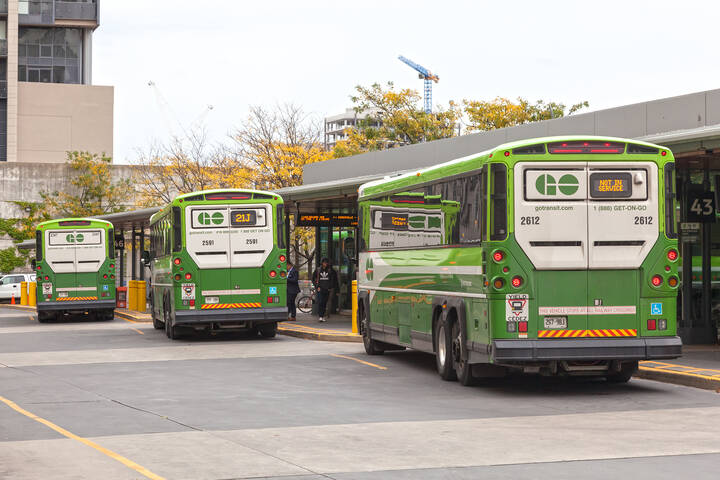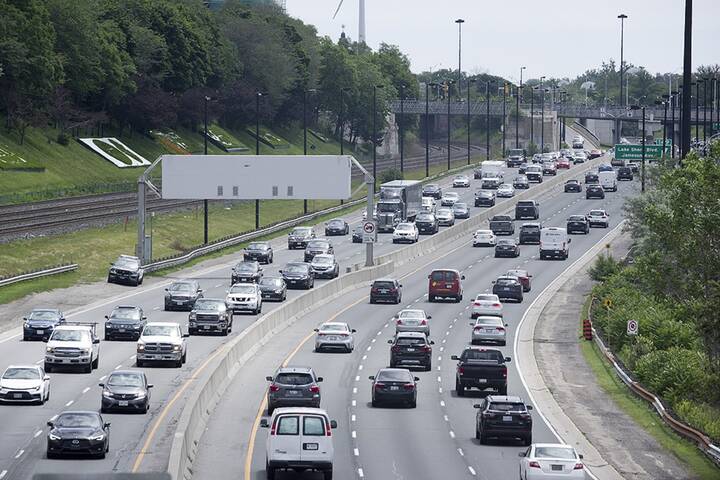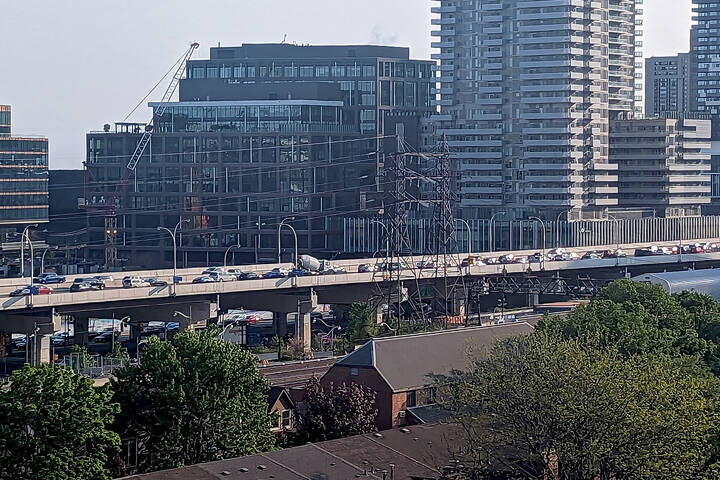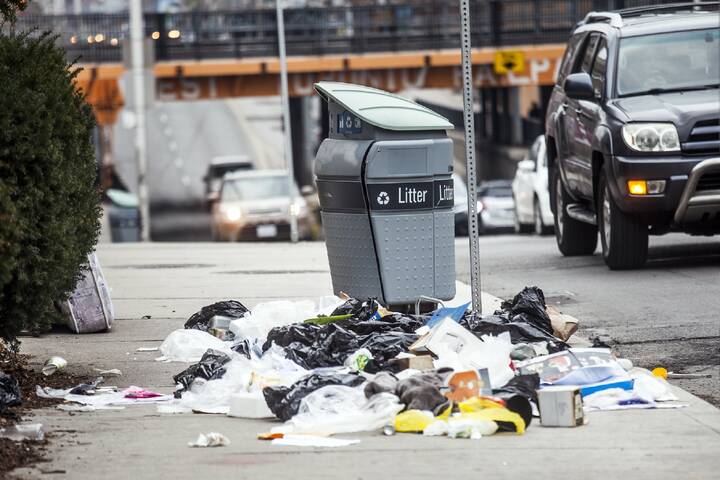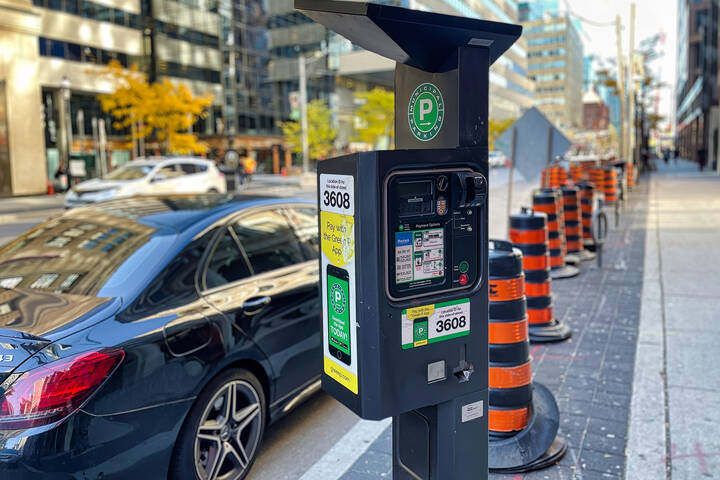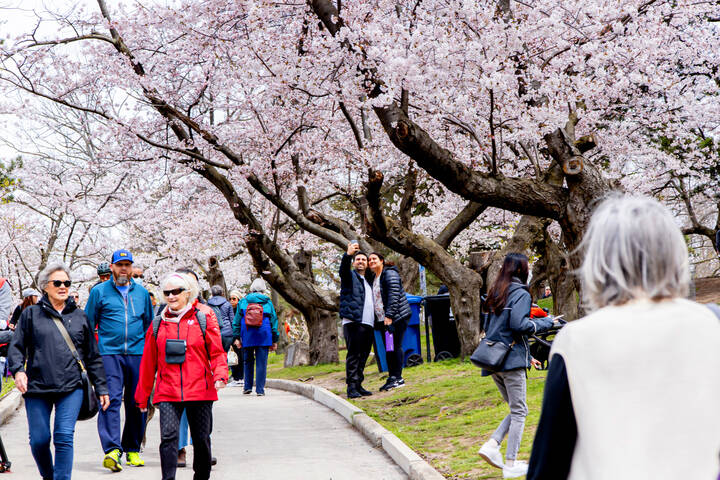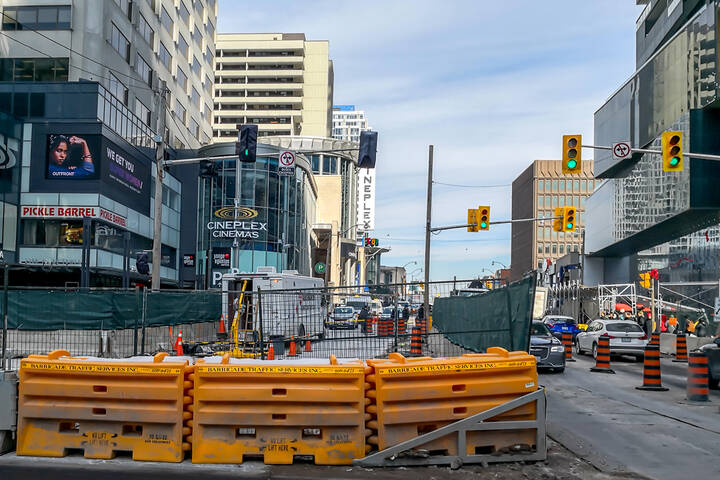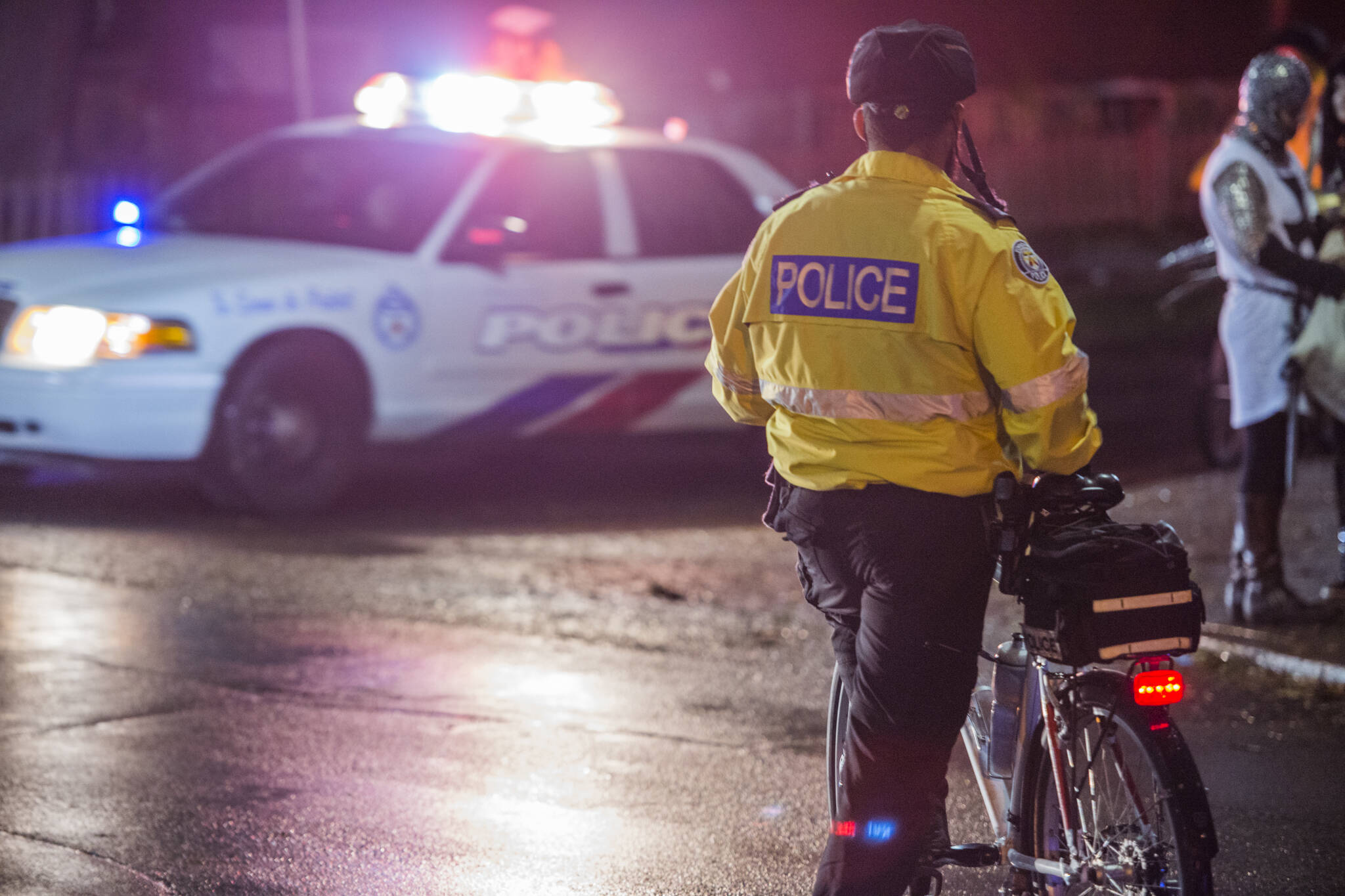
How Toronto police handle major protests and rallies
Protests, marches and vigils are happening in Toronto with greater frequency than we've seen in a long time. Some may be wondering how the city handles such protests and events?
"No two events are the same, and we look at a whole variety of things [when overseeing a large public event]," spokesperson for the Toronto Police Mark Pugash says. "It’s always a balance between the people who wish to protest and everybody else in the city."
Pugash says the Toronto police try and facilitate as best they can when they're notified of something like a protest or a rally that could disrupt city traffic. He wouldn't comment on situations where they are not notified because each situation is different.
"We’re very skilled at working that balance," Pugash says. "Sometimes people ask us, 'why are you letting them sit down in the street? They're not allowed by law.' We have discretion, and we use that discretion to maintain the balance and try to accommodate all sides.
"It does mean that occasionally people have to put up with some disruption, but that’s all part of the balancing process."
Toronto Police arguably have the most experience working with large crowds than any other police service in the country. They deal with everything from major sporting events, to one of the largest Pride parades on the planet.
But what exactly does it take to make sure an un-planned, peaceful or not-so peaceful event goes off smoothly?
It's about cooperation from the organizers of the rallies, most of whom Pugash says are open to communication because they want protesters to be safe.
Departments include the mounted police, community response (those are officers on bike and on foot), divisional officers (these are police who work in specific neighbourhoods) and the public safety unit (officers brought in to handle extreme situations).
"We do a lot of work in advance to assess and to analyze," Pugash says. "How big an event is it? How many people are likely to turn up? Are there rival groups? Is there a history of aggression or violence associated with a particular event? The plans we put into place reflect that."
The city is also an important team player. "What's key from our perspective is that city bylaws, policies and practices are upheld and respected, says Wynna Brown, manager of media relations for the city of Toronto.
She says permits are typically required for many gatherings, but wouldn't comment on situations where groups don't apply for a permit and move ahead with an event anyway.
The police and city won't comment on specific strategies or numbers of people involved because they insist it depends on each situation, but Pugash does suggest advance research and understanding of each event is key.
Next time you attend a rally or a protest or even a vigil, have a look around and take note of the different departments involved and if they are indeed being helpful in making everyone involved feel safe.
Hector Vasquez
Latest Videos
Latest Videos
Join the conversation Load comments
